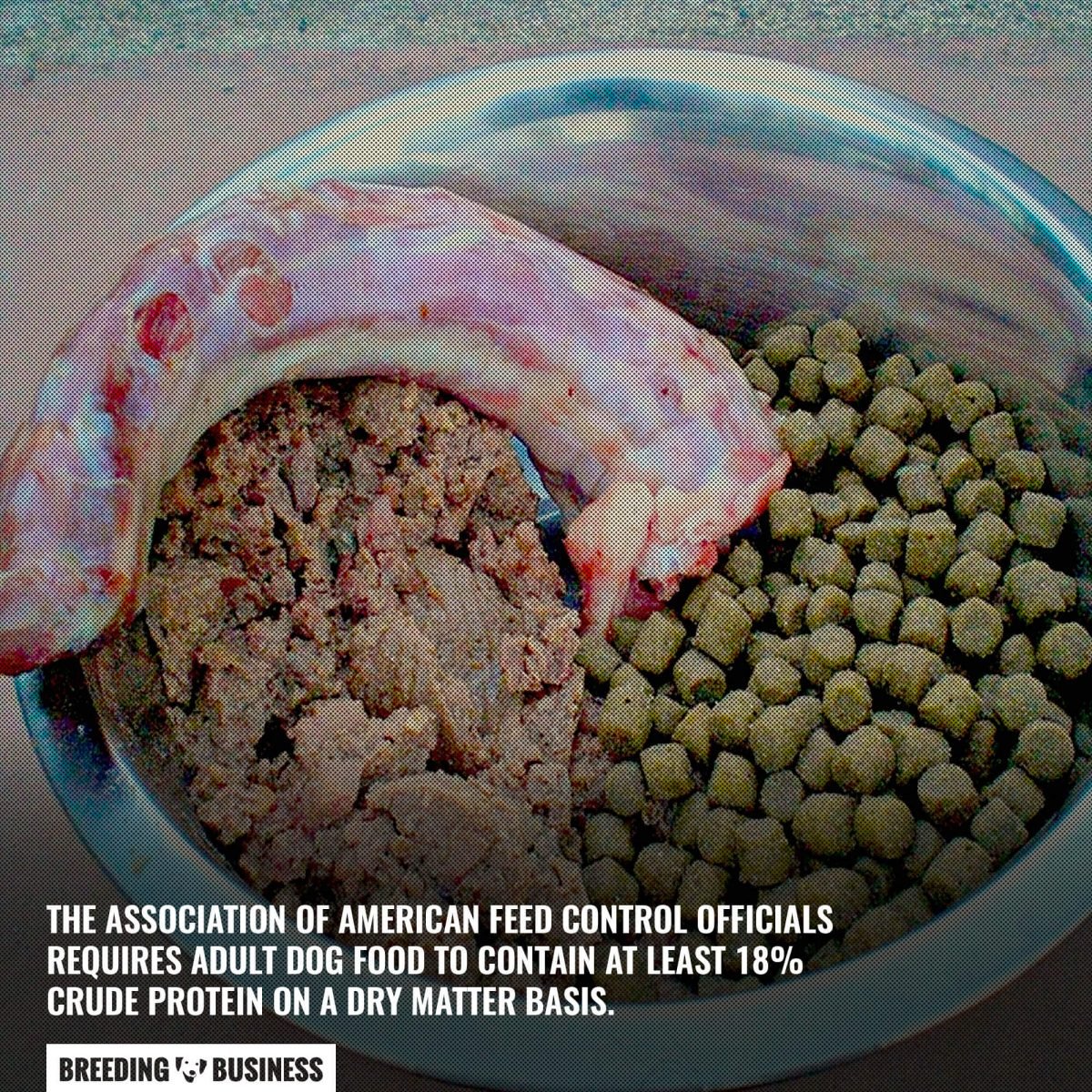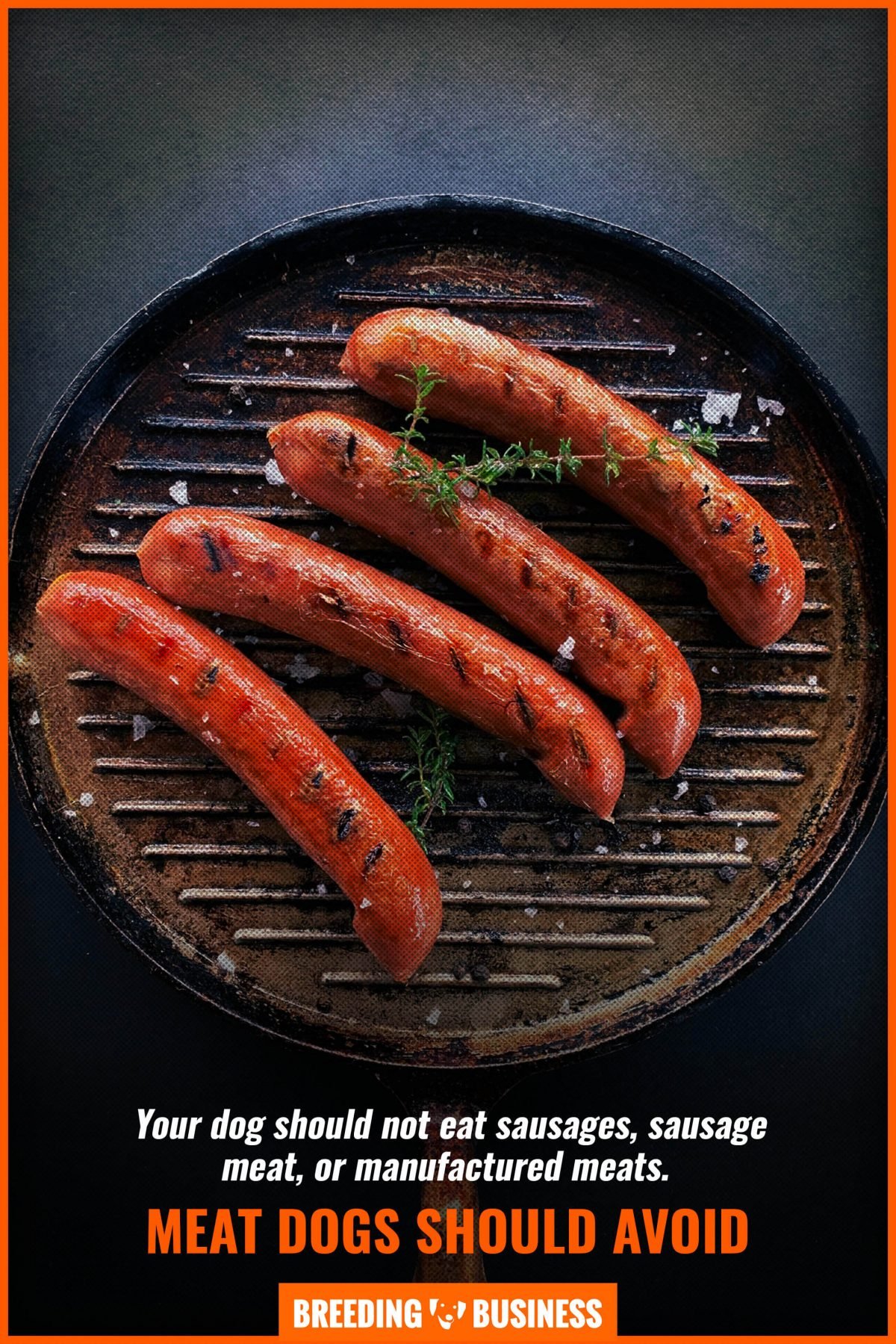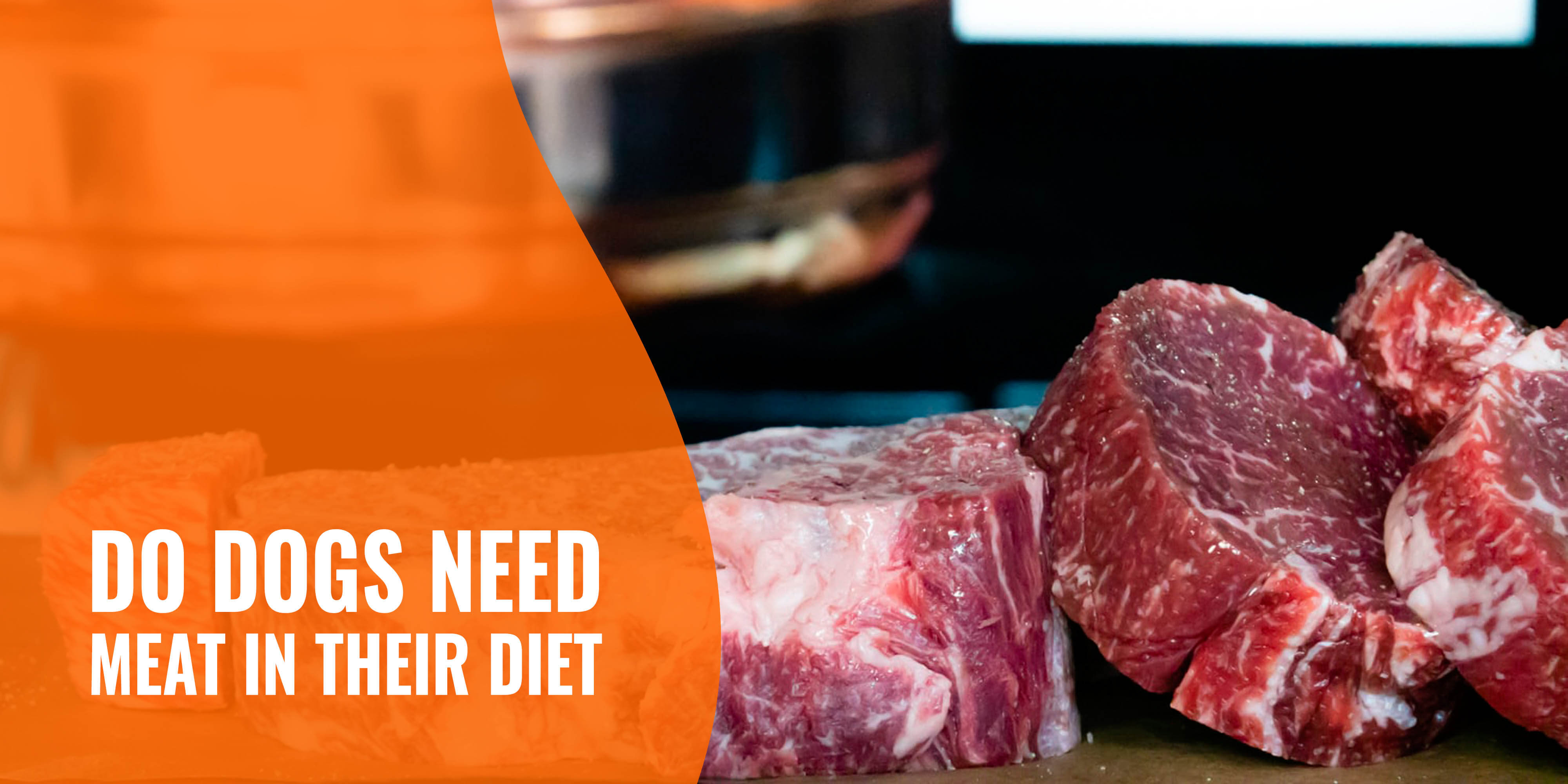Like a lot of dog lovers, you might have asked yourself where dog need meat in their diet. With vegetarianism and veganism on the rise, many pet owners are filled with questions and are excited at the possibility of a meat-free diet for their dogs. Others believe that vegan dogs live longer than others. While it is true that dogs are omnivores, some dogs have adapted to vegetarian diets alongside their owners. Vegan diets, however, are the source of far more controversy.
Meat-free diets which are completely free from animal products are very difficult to make, and oftentimes, it’s easier to get it wrong than it is to get it right. If you cannot seek veterinary advice and supervision through the process, a vegan diet is not for your pet.
Do Dogs Need to Eat Meat?
Domestic dogs have been described as either carnivores or omnivores. When described as an omnivore, it’s typically argued that dogs produce amylase to digest foods other than meats. In contrast with wolves, who carry only two copies of the gene for amylase, dogs carry 4 to 30 copies. This means that the gene is about 28-fold more active in domestic dogs. As a result, our dogs are better able to digest a starch-rich diet than wolves. At the same time, dogs can only produce bile acid with taurine. Dogs also need arginine, which is found in red meat, to maintain nitrogen balance.
While taxonomically a dog is a carnivore, it could be said that they have evolved into omnivores over time. Some researchers would disagree, citing that dogs present as carnivorous based on their other adaptations. Dogs possess long canines for ripping and tearing meat. They also possess shorter gastrointestinal tracts compared to the longer gastrointestinal tracts of confirmed omnivores and herbivores. Furthermore, while dogs do produce amylase, it is not produced in the saliva like it is in herbivores and omnivores. This enzyme is added further down in the gastrointestinal tract.
Homemade vs Commercial Vegan Dog Food
When compiling your own homemade recipe it’s important that you seek the advice of your veterinarian. Your dog requires a wide range of vitamins, minerals, and amino acids that you might miss when creating your home-made diet. If you choose to go home-made, ensure that you schedule more frequent vet visits to ensure that your pup is staying happy and healthy.
The other option is commercial vegan dog food. Commercial vegan diets are not always complete and balanced, so it’s essential that you thoroughly research the food before you make your purchase. Ensure that the commercial diet contains a high-quality source of protein along with the necessary supplements for your dog’s health.

Drawbacks of a Meat-Free Diet for Dogs
Proponents and opponents alike should make themselves aware of the possible drawbacks of a vegan diet for dogs. The two most common drawbacks cited are that dogs often refuse vegan food, and that vegan food is difficult to get right. Without sufficient research and planning, a vegan recipe can quickly cause a dog to fall ill or go off their food entirely.
Acceptance
Some dogs who are new to a meat-free diet are initially disappointed with the lack of meat. Dogs selectively choose meals that are high in protein, and because meat is high in protein, they will naturally choose a meaty food over another. Whether this is down to their taste preference of if it’s a complex biological response is uncertain. Studies suggest that dogs can tell when their food is lacking in a single amino acid. If they detect the lack of amino acid, they will avoid the meal entirely.
Amino Acid Deficiency
Amino acids are what make up dietary proteins. There are 22 amino acids that are necessary for the normal functioning of the body. In dogs, 12 amino acids are non-essential, meaning that the body normally produces them on its own. The other 10 amino acids must be given in the diet. The essential amino acids for dogs are: arginine, histidine, isoleucine, leucine, lysine, methionine, phenylalanine, threonine, tryptophan, and valine. When a dog is deficient in any one of these amino acids, the effects can be devastating.
Dietary proteins with a high biological value are digestible and have a high content of essential amino acids. Eggs, red meat, poultry, milk, and cheese are prime examples of high-value dietary proteins. Animal proteins are widely regarded as complete proteins, meaning that they provide each of the essential amino acids our dogs need. Plant proteins, on the other hand, are not always complete. Quinoa and soybeans are regarded as complete proteins, whilst other plant proteins are either nearly complete or lacking in a lot of amino acids. For this reason, most vegan dog diets are made with protein supplements to boost the number of amino acids in their food. When a vegan diet is not adequately supplemented, dogs often reject their food or become unwell due to the lack of proteins in their diet.
How to Switch from a Meat-Based to a Vegan Dog Diet?
So you’ve just ordered your first bag of meat-free dog food and naturally, you’re excited but nervous. Will the transition to this food be difficult? Will your dog miss out on any essential nutrients? As long as you choose a formula that is complete and balanced and takes things slow, the change should be smooth and easy.
Transitioning your dog to a vegan diet works just like transitioning to any other diet. Allow your dog a period of 1-2 weeks to adjust. Start with 90% of the previous diet and 10% of the new one. From here, you can gradually increase the proportion of the new food in your dog’s bowl.
Make sure that you closely monitor your pup’s health throughout the transition. If you switch foods too quickly your pooch can quickly come down with vomiting and diarrhea.
5 Best Dog Foods Without Meat
In some rare cases, your dog might benefit from being served a meat-free meal. Your vet might prescribe your dog with vegetarian kibble to combat food allergies, liver diseases, and bladder stones. During this time, the vet will supervise your pet’s overall health and condition. If you choose to give your pup veggie meals without a prescription, it’s imperative that you pay close attention to the ingredients and their quality before buying a bag.
Your dog needs a certain amount of energy and nutrients to sustain their daily activities. Generally measured in terms of calories, your dog’s energy comes from carbohydrates, protein, and fats. Your dog needs 5.5 to 20% fat and a minimum of 10% crude protein in their diet. However, the Association of American Feed Control Officials requires adult dog food to contain at least 18% crude protein on a dry matter basis. In addition, your dog also needs up to 50% carbohydrates, 2.5 to 4.5% of this coming from fiber. Keep these figures in mind when selecting your pup’s new food.

1. V-Dog Adult Dry Kibble
V-Dog Kind Kibble is made with 100% vegan ingredients. Its ingredients include peas, lentils, quinoa, and brown rice. It’s also fully supplemented with L-carnitine, taurine, and 24% protein. There are approximately 4 cups per pound of kibble. The 20 pound bag contains approximately 80 cups, while the 30 pound bag contains close to 120 cups.
Because the kibble is free from animal products, soy, corn, and wheat, it’s a great option for dogs with dietary sensitivities. Its recipe includes peas and brown rice as its sources of protein and carbohydrates. Brown rice is a common ingredient that is easier to digest than soy. It also provides more fiber and helps to keep your dog’s digestive system moving normally.
The most controversial ingredient is canola oil. That’s because it is sometimes (not always) derived from genetically modified rapeseed. Plant-based oils are less biologically available to dogs than fish oils as a source of omega-3 fatty acids. Some customers report that the lower fat content (9.0%) leads to skin issues. Dogs who eat low-fat diets develop coarse, dry hair, and skin.
2. Halo Vegan Dry Dog Food
No products found.
Halo Holistic Garden of Vegan is a 100% vegan diet. It is claimed to be a complete and balanced food. Made with chickpeas, beet pulp, watercress, and sweet potato, this vegan formula is digestible and made with beneficial omega fatty acids.
The kibble is small, round, and flat, making it easier for dogs of all sizes to eat. Using peas as the main source of protein puts its digestibility just under that of beef: beef comes in at 0.92, whereas pea protein sits at 0.82. Peas are also a quality source of carbohydrates. And like all legumes, they’re rich in fiber too. Barley is another good source of starchy carbohydrates.
Some buyers state that the kibble occasionally smells unusual and that it quickly goes rancid due to the oil content. This means that some dogs will be put off eating this food due to the smell and taste. Some dogs experience nausea. The higher fiber content (8.5%) is also a downside and can contribute to diarrhea.
3. PetGuard Vegan Entree Formula
PetGuard’s Organic Vegetarian Vegan Entree is a meat-free canned food. Approved by the USDA, this diet contains 100% organic fruits and vegetables and is free from artificial preservatives. This food is suitable for all life stages.
Many dogs love the taste of PetGuard’s Organic Vegetarian Vegan Entree! The dryer texture is perfect for dogs who turn their noses up at the sogginess of other brands. Its organic ingredients are safer and often better tasting than GMO foods.
This vegan diet tends to be dry and dense. It is also low in protein, sitting at only 7.5% minimum. There is also not any taurine supplemented in this food. Finally, the can is not recyclable, so while the ingredients are organic, the end result is not necessarily best for the environment.
4. Natural Balance Vegetarian Formula
Natural Balance Vegetarian Formula is a dry vegetarian diet. Made with brown rice, oat groats, barley, and potatoes, this kibble is fortified with a wide range of essential vitamins and minerals. The 28 pound bag contains approximately 112 cups of food. The 4.5 pound bag contains around 18 cups.
This veggie diet is perfect for any dogs with meat intolerances! This dry food contains 18% protein and 8% fat. These percentages match up with the minimum guidelines set by the AAFCO. This food also contains a source of taurine. Taurine is an important amino acid associated with the healthy functioning of the heart. Lastly, this canned food also contains chelated minerals. These are minerals that have been chemically attached to proteins. This process makes the minerals easier to absorb.
On the downside, this vegetarian formula is not grain-free. If your dog is unlucky enough to have a grain allergy, this diet won’t be ideal for them. Furthermore, some dogs experience diarrhea after eating this food.
5. The Honest Kitchen Fruit & Veggie Dehydrated Formula
The Honest Kitchen Grain-Free Fruit & Veggie Dehydrated Dog Base Mix is a vegetarian food mixture. This diet is an antioxidant-rich selection of veggies and fruits that eliminates the prep-work of home dog food cooking. Simply add water and a source of protein to the mix and your pooch’s meal is complete!
This recipe is gluten-free and grain-free, making it a great choice for pets dealing with multiple meat sensitivities. If your dog is able to eat one source of protein, you are free to add this as a topping on your dog’s meal. This mix also includes a source of taurine, which other vegetarian and vegan mixes sometimes forfeit.
At the same time, The Honest Kitchen’s base mix is not a complete or balanced diet on its own. Their base mix always requires owners to add their own meat. Without an extra source of protein, the mix only contains 10.5% protein.

Do Dogs Need Meat in Their Diet – FAQs
Still find yourself asking if a dog needs meat in its diet? Let us address your questions in our Frequently Asked Questions section below!
It’s theoretically possible to feed your dog a vegetarian diet, but it’s much easier to get their diet wrong than it is to get it right. Vegan diets, on the other hand, are the source of much more controversy.
While some owners claim that their dogs thrive on a vegan diet, others express concern that a vegan meal lacks the nutritional requirements for a healthy pooch. Designing a healthy, completely meat-free diet for dogs is extremely difficult, even for licensed dog nutritionists.
The proteins derived from animal products like keratin and collagen are vital for your dog’s skin, muscles, and joints, and are difficult to derive from vegan food. Making your dog vegan without supervision from a licensed veterinary nutritionist could lead to malnutrition and other severe complications.
Our domestic dogs are said to be omnivores, meaning that they are adapted to eat meat and plant matter. Although dogs can eat both meat and plants, dogs will naturally favor foods that contain all of the essential amino acids. Red meat is considered a complete source of protein. This means that dogs tend to prefer meaty meals for their protein content. Most dogs love the taste of meat too!
At the same time, not all dogs should eat meat. In rare medical cases, veterinarians use specially made pet foods that are made from non-meat protein sources like egg or soy. These diets are prescribed to treat food allergies, liver diseases, and sometimes bladder stones. During this time, the vet will supervise your pet’s overall health and condition.
Your dog should not eat sausages, sausage meat, or manufactured meats. Pork sausage is high in salt and fat and can be processed with seasonings that are unsafe for your pooch. Furthermore, undercooked or contaminated sausage meat exposes your dog to parasites like Trichinella. Manufactured meats sometimes contain sulfite preservatives. Unfortunately for your dog, sulfite preservatives can cause a thiamine (vitamin B1) deficiency. This deficiency causes severe neurological issues and can be fatal.
Raw meat is another risk to dogs. While dogs can digest raw meat, all raw meat has the risk of carrying harmful bacteria. These bacteria are not only harmful to your pet, but to you as well. Because of the risk of harmful bacteria in uncooked meats, the FDA, CFC, and AVMA recommend not feeding your dog raw meat.
There are several risks that come with converting your dog to a vegan diet. Firstly, your dog might struggle with inadequate protein intake. Second, there can be an imbalance of certain amino acids such as L-carnitine and taurine. Third, deficiencies in vitamins (i.e. B vitamins) and minerals (i.e. as calcium, iron, and phosphorus) can result due to the lack of animal products. If allowed to continue for too long, these dietary imbalances will lead to serious conditions.
To conclude, dogs do not necessarily need meat in their diet, but vegan diets can quickly cause harm to your pet if not thoroughly researched and supervised correctly.




